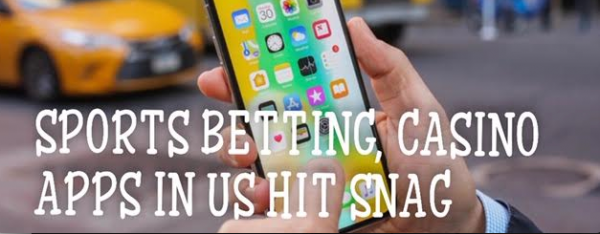Sports Betting Apps in US Set to Hit Roadblock With New iPhone Policy
Just in time for the start of the new Football season, Apple is requiring that all iOS gambling apps must be built natively rather than as HTML container apps effective September 3. This is big news for the app-less offshore sportsbook and casino operators who have been left at a competitive disadvantage in newly regulated markets.
|
*50% signup bonus up to $1000 |
Existing apps, including the vast majority of sports betting platforms in the New Jersey market, must abide by the new rules as well. This will be no easy task and the process for adherence likely won't occur until some time later in the NFL season.
The new guidelines state the following:
“HTML5 games distributed in apps may not provide access to real money gaming, lotteries, or charitable donations, and may not support digital commerce. This functionality is only appropriate for code that’s embedded in the binary and can be reviewed by Apple. This guideline is now enforced for new apps. Existing apps must follow this guideline by September 3, 2019.”
“It’s going to hurt a lot of people,” said Stuart Godfree, managing director and co-founder of gambling apps and software developer mkodo, in an interview with OnlinePokerReport.com. “Rebuilding a game will take several months; just look at the size of the [games] portfolios that people have. It’s huge.”
“I would say, 95% of all sportsbook products are wrapped, containerized apps and there are very few exceptions to that,” Godfree said.
Better than 80% of the sports betting handle in New Jersey had come from mobile apps.
FlushDraw.net explains the dilemma further:
It’s a problem for most online operators, since such online-gambling platforms are generally written once, into web-standard HTML (HTML5 being the web’s latest interactive generation of language), and then converted or “wrapped” into an iOS shell. Think of the way a major white-label poker software platform — the Microgaming Poker Network is a fine example — offers skins to its dozens of partner sites. The skin features branding and front-end connectivity and is grafted on top of the underlying MPN software that actually runs the games. That’s roughly what virtually all online-gambling operators have done to make their products available to iPhone users: they’ve run their existing HTML code through an iOS converter, checked for problems, and issued the release.
Godfree tells OPR, live dealer games will be impacted the most, and the process to adapt will take up to a year's time as all live casino products are deployed through HTML pages.
“They are going to have to significantly change the architecture if they want these products to still go into apps," he said.
In addition to New Jersey, the Pennsylvania mobile market will also be hit as they begin coming online this summer.
The SugarHouse Casino and Sportsbook in Pennsylvania has gotten around this by simply not taking bets via iPhones.
Something Deeper at Play Here?
LineUps.com questions whether Apple has ulterior motives. Perhaps this is their way of getting a piece of the gambling action.
It is possible that Apple is doing this to get a cut of the gambling action. Apple takes a 30 percent commission on app sales and in-app purchases. For products “fulfilled outside of the app,” Apple gets no slice of the pie. Real money gambling would fall under that category since it doesn’t involve a physical product. When the app uses HTML5 code to connect to external operators to handle deposit and withdrawals, those transactions are considered to be on the “outside” of the app.
What to Expect
Apple could possibly force all developers to handle these deposit and withdrawal transactions with compiled code. If they were to do so, they could argue that those transactions are fulfilled within the app. That would allow Apple to get its 30 percent cut. If that becomes the case, we may not see any iOS sportsbooks, especially in Pennsylvania. Pennsylvania sportsbooks are subject to a 36 percent tax on revenue as is. They are not going to allow Apple to take 30% of their sports betting handle. That would more than eliminate a sportsbook’s profits.
Calvin McAlee of LineUps.com suggests this could be a much bigger deal than just some months long delay in revamping a gambling company's app platform.
Unless Apple drops its percentage down for real money gaming apps (and significantly), we may not see any real money gambling sites on iOS.
- Gilbert Horowitz, Gambling911.com















